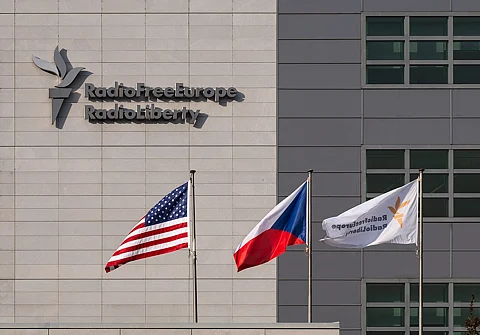

The European Union has approved €5.5 million in emergency funding for Radio Free Europe/Radio Liberty (RFE/RL) after the U.S. government suspended its financial support earlier this year. The Trump administration halted grants to the 75-year-old broadcaster in March, accusing it of promoting a news agenda with a liberal bias.
EU Foreign Policy Chief Kaja Kallas announced the funding on Tuesday, calling it a "safety net for independent journalism" amid growing concerns over press freedom. RFE/RL, founded during the Cold War to provide uncensored news to people under communist rule, now operates in 27 languages across 23 countries in Eastern Europe, Central Asia, and the Middle East.
Kallas, who grew up in Soviet-era Estonia, emphasized the broadcaster’s historical role in countering authoritarianism. "Coming from the other side of the Iron Curtain, it was from the radio that we got a lot of information," she told reporters in Brussels. "It has been a beacon of democracy—very valuable in this regard."
The EU funding will not cover all of RFE/RL’s operations but will prioritize regions such as Central Asia and the Caucasus. "In a time of growing unfiltered content, independent journalism is more important than ever," Kallas said. The aid is intended to help the broadcaster continue serving audiences "very much dependent on news coming from outside."
The U.S. funding cuts have sparked legal battles. A federal judge initially paused the Trump administration’s decision to terminate grants to RFE/RL and other publicly funded outlets, but an appeals court overturned that ruling this month. RFE/RL’s lawyers argue that without congressional-allocated funds, the broadcaster risks shutting down by June.
The Czech Republic, where RFE/RL’s journalistic headquarters are based, has led EU efforts to secure alternative funding. Kallas expressed hope that individual EU member states would contribute additional support to ensure the broadcaster’s long-term survival.
As the U.S. reduces foreign aid, the EU is seeking "strategic areas" where it can step in—with RFE/RL now a key priority in the bloc’s defense of independent media.